|
Inspired by Luke 18:9-14 When I first started ministry twenty years ago and went to different churches preaching, I would start by asking this question. How many wheels has a car got? "Four," would be the reply. Then someone else would shout "five" because there is the steering wheel. Finally, someone would shout "six," because there is a spare wheel in the boot. I then used wheels five and six as an analogy to how we use prayer. Do we use it to help steer our lives, seeking God's direction and guidance, or do we use prayer as a spare wheel, only to be used in an emergency?
Thinking about prayer, not only in conjunction with today’s reading of Luke 18:9-14, but because prayer is abundant in the Bible, I wrote down some thoughts about the subject. I offer them in no particular order of importance. PUSH, seen on many doors, can be an acronym for Pray Until Something Happens. This, of course, corresponds to Paul’s first letter to the Thessalonians 5:17, where we are encouraged to pray without ceasing. Prayer builds up our relationship with God. We come as we are, and our prayers are always good enough. Prayer enables us to find peace, calms the body and removes us from the stresses and strains of a situation as we articulate our feelings and offer them to God. Prayer helps us think. Prayer enables us to listen to God's guidance, so there must always be an element of silence. Prayer offers us perspective and a bigger picture, allowing us to remove ourselves from the myopic to God's universal vision of the world. By praying, we keep perspective as we acknowledge that we are not the centre of the universe. Prayer helps us be observant because we take an interest in the world. We pray for our brothers and sisters worldwide. Prayer enables us to focus on God. Prayer helps us see ourselves as we are and means removing our mask, which we put on to help us in daily life. We need to come genuinely to a God who knows us well. Prayer enables us to be compassionate and to see whatever issues we have through God's eyes. Prayer needs action. So we pray and create the energy to keep going, for persistence in prayer is vital. We also have to think about what actions are needed to help those prayers come true. Prayer enables us to receive God's grace, align our thoughts with God's and seek the justice which God wants for all of his creation. Prayer allows us to hand everything over to God, and we have to have an attitude of expectation that our prayers have been answered. Whilst it is a cliche, it is true that sometimes the answers to prayer are "yes", sometimes "no", sometimes "maybe", or sometimes all in God's time, not ours. But it is also a cliche that you need be careful what you pray for. Sometimes it is not good for us, and that is why the prayer is denied. Ralph Waldo Emerson said, “Prayer is the contemplation of the facts of life from the highest point of view.” Alfred, Lord Tennyson wrote, “More things are wrought by prayer than this world dreams of.” Are we the answer to someone's prayer? From prayer comes imagination, and from imagination, we start dreaming. We dream of what life could be like, and through imagination, create situations that could resolve our issues. From dreaming and imagination, you build a bridge to reality. Prayer is a process. It is a process of cleansing and understanding. It needs acceptance of the situation and then looking for opportunities to do God's work. Through prayer, we can perhaps see what God wants us to do to help others as well as ourselves. The motives of our prayers are clear to God, and God cannot be fooled. So we need to examine our motives for why we wish something to occur. So, prayer is about relationships. It is about understanding that God is love. It is about seeking a direction in life. It is providing us with strength and energy and renewed commitment. It is about aligning our wishings with God's. It is about believing in miracles and trusting in God. Prayer helps us imitate Jesus, his values and the obedience that Jesus had to God, which, of course, was an extension of Jewish values, such as looking after the poor, the widows, and the marginalised. One thing that stops our prayer life and the development of our spirituality is pride. In the Luke reading, we see a pharisee, a good, holy man, who went over and above what was needed, but there was no space for his to grow. He could not see the need. Self-importance filled his life, whereas the despised tax collector, not even able to look up, came to the temple in humility, recognising he was a sinner and requesting mercy. So our prayer life has to direct all our life and has to give us room to grow, so that we can be more like Jesus in all that we do.
6 Comments
I am going to take each reading separately, so first, the Genesis. The book of Genesis, whilst written by Moses, has its origins in four different ancient sources. The weirdness of this passage may be because it contains parts of these various sources, especially if they came from different cultures.
It is hard to explain Jacob fighting with God, even if it is God incarnate - that is God made flesh. The context of this reading involves Esau. As we recall, Jacob tricked Esau out of his birthright. So, this meeting is between Jacob and a man who vowed to kill him. Jacob’s anxiety may be exacerbated by the fact that Esau is meeting him with 400 men. So the context of this strange dream or encounter is on the day before this historic meeting is to take place. I think this resonates with all of us because we have all had that feeling of foreboding. Indeed, I read that two-thirds of adults in England say they regularly experience “Sunday Scaries”, which is anxiety about the coming week. So Jacob could have been having a restless, sleepless night. Is Jacob wrestling Esau in his dream, an angel or God incarnate? We do not know, but it is the wrestling that fascinates us. I am old enough to remember World of Sport at 4 pm on a Saturday when Kent Walton would say, “Welcome grappling fans”. Wrestling and grappling involve flesh touching flesh. It is an all-embracing struggle as one person tries to outpower, outthink and outmanoeuvre the opponent. I like the idea of Jacob wrestling with God because, as a Christian, it permits me to wrestle with God myself. Not physically but mentally, calling God to account and trying to understand God’s ways. Even Jesus wrestled on the night before his crucifixion. So I think it is okay to wrestle with God in our minds. Encountering God will change you. In acknowledgement of that, in this story and throughout the bible, names are changed following encounters. Jacob became Israel, which can mean God saves or one who struggles with God. Abram became Abraham and Saul became Paul. Simon became Peter the Rock. So, names are important as they reflect the new personality formed by an encounter with a living God. The story has a happy ending. Rather than killing Jacob, Esau forgives, just as later Jacob’s son Joseph would forgive his eleven brothers. So I take away from this reading permission to wrestle with God whilst acknowledging God’s sovereignty over me. Encounters with God create a change in you, and it is okay to face our fears, trust in God and be obedient to God. It is a story of forgiveness and moving on. From the Luke text, there is much for us to take. The persistent widow talks to us about justice, faith and persistence in prayer. We know that the judge had no regard for God or others, although we do not know if he were corrupt, as some commentaries state. It might be that all judges are corrupt, but the passage only tells us that he was ungodly. According to Deuteronomy 16:18, the role of the judge was to render just decisions, and Exodus 22:22 reminds us that we should not mistreat any widow. Yet, the widow, a woman without a husband, probably childless, was the most marginalised person in society other than children. Yet she has a voice. Despite having no power, no influence and no people supporting her, she uses her voice effectively because of her persistence. There are many examples of persistence in today’s society. Walt Disney, for example, was told a mouse would never work. Oprah Winfrey was told she was unfit for television. Stephen Spielberg was rejected three times from film school. Elvis Presley was fired after one performance and told “you ain’t going nowhere son, you ought to go back to driving a truck. Sidney Poitier was told he could not act and that he would make a better dishwasher. Colonel Sanders of KFC fame has his “Finger Lickin’ Recipe” rejected 1,009 times. J. K. Rowling had her Harry Potter books rejected by 12 different publishing houses. So, persistence pays off. The story speaks of faith. The woman did not know that she was going to have her request granted, but she had hope and faith that somehow she would be heard and her cause righted. From this, we can take that ability to keep going in faith, so long as we are also enveloped by prayer. Some people say that prayer is a waste of time, yet through prayer, we can harness the energy, articulate our thoughts, and hopefully see the world through the eyes of God. Alfred Lord Tennyson (1809-82), in his book Idylls of the King, said, "Pray for my soul, more things are wrought in by prayer than this world dreams of; wherefore let thy voice rise like a fountain for me night and day." Prayer indeed works. Sometimes this is in ways we were not expecting. Sometimes it is not in the time frame we want but in God's time frame. Sometimes the prayer we ask is not right for us and is consequently sidelined, but the power of prayer gives us the energy to try harder. If we keep on praying, we keep the hope alive. The interesting thing about this reading is it shows the unusual happening. The widow wins. Sometimes, when we keep on going, we do get the break that we need. I wonder if the Kingdom of Heaven is a kingdom where the unusual happens. Regarding prayer, I recall Ralph Waldo Emerson (1803-82) in his book Self Reliance and other essays saying, "Prayer is the contemplation of the facts of life from the highest point of view." So with prayer, we are trying to see things from the compassionate and merciful eyes of an ever-creative, ever-loving God. Prayer through God's eyes helps us see the bigger picture. In this parable, we see ourselves as perhaps the widow fighting our just causes. But are we ever the judge? Do we have people who continually annoy us, and to get rid of them, we give in? Remembering that we are sometimes the judge, not the widow, may create humility in us. The main take from this text is how great God is, that if the judge can be moved, how much more God will listen to us. It reminds us of God's ability to listen but also the persistence of prayer. Paul writes in his first letter to the Thessalonians 5:17 that we are to pray without ceasing. Thomas Edison wrote, "Our greatest weakness lies in giving up. The most certain way to succeed is always to try one more time." And who can forget Winston Churchill's famous speech, where he stood up to the people longing to hear Churchill at his greatest oration, saying simply, "Never, never, never give up." Finally, I leave you with the acronym, PUSH, which stands for Pray Until Something Happens. Also remember, it is always the squeaky gate or wheel that gets oiled first. The shell is there to keep the conker safe and put off predators. So, let us reflect upon what keeps us safe. Do we find our security in Jesus or in other places? The shell also represents a mask. Sometimes we wear masks to navigate through life. Some bullies at school choose bullying as a mask for their own insecurities. Let us remember that Jesus sees through our masks and sees the true beauty that we possess. The conker represents true beauty. It can be polished, making its lovely brown shine. It is totally aesthetically pleasing. Let us meditate on the beauty of the conker and just enjoy it. Enjoy the feel of it, the touch. Let us remember that it is a seed, so the conker also represents potential. Let us think about our own potential. For this conker to grow into a tree and produce other conkers, it needs the right soil, rain, and sun. We know how to make this conker grow into a tree, but what do we need for our potential to grow? What is our soil like? Our environment? Our values? Our friends and family? Do they encourage and support us? Are they there for us in times of difficulty? Do we have role models? Do we know what we want to achieve? Whatever our potential, look upon this conker as a representation of what we can offer. This conker is so much more than a seed. We are also much more than what people see first of all. Conkers contain aesculin, which Doctor Google, the source of my information, advises is a blood thinner and counters water retention. This conker contains anti-oxidants, which prevent cell damage and contains. It is twenty times stronger than vitamin C in the fight against free radicals. Wrinkles are diminished after a minimum of 4 weeks of use. Horse chestnuts strengthen hair roots and accelerate hair growth. Apparently, it is also a treatment for varicose veins and haemorrhoids. Also, the horse chestnut was so named because its seeds were once used to treat ailments in horses. So within this one conker, through the brilliance of science, there is the opportunity for healing. I understand that the saponins in conkers are soap-like chemicals that are sometimes added to shampoos and shower gels. If you put a conker in your wardrobe, the triterpenoid saponin wards off moths. Fresh conkers, as they dry, emit the moth repellent. In Victorian times, the shells were ground and used to make flour. This is not recommended because conkers are poisonous. As we continue our meditation, think about how we can heal others. What inner strengths do we have? Have we been poisonous to other people? Should we be seeking forgiveness because we have hurt someone, even unintentionally? For the final part of our meditation, put a cross on the conker. The cross of Jesus reminds us that Jesus has CONKERED death. Let us use this conker to think about how we conquer evils. Reflect upon Romans 12:21, “don’t let evil conquer you, but conquer evil by doing good.” Remember the words of Jeremiah 15:20, “they will not conquer you for I am with you to protect and rescue you.” Psalm 91:10 says, “no evil will conquer you”. This conker represents eternal life. Jesus has conquered death through his resurrection, and as Christians, we can be reassured that, though we may die physically, our life continues in spiritually heaven. This humble conker, which in autumn you can see on the ground in plentiful supply, offers so much just as we offer so much. Everywhere we go, we can spread the gospel of the good news that Jesus has conquered death. We demonstrate this in our way of living: our positive attitude and ability to heal others by being there for them, walking alongside them and praying with them. Amen. This sermon was first preached by Reverend Martin Wheadon at Wanstead United Reformed Church on 9th October 2022
Luke 12:13-21 - in which the farmer builds a bigger barn to house his bumper crop; Colossians 3:1-11 - which in essence says, if you have got stains on your shirt, change your shirt. There are some other readings you might like to look at first to give some background context. Our pericope is from the wisdom section, therefore, you might like to refer to 1 Kings 3:8-13, in which Solomon asks for wisdom; and Isaiah 22:13b, which says eat and drink for tomorrow we die. This can be compared with Luke 12:19, which quotes eat, drink and be merry, but in 1st-century Palestinian culture, they would have known the Isaiah version. James 4:13-17 reminds us that we do not know what tomorrow will bring, and Luke 16:19-31 is the story of the rich man and Lazarus. Matthew 6:21 reminds us, “For where your treasure is, there your heart will be also,” and Luke 12:33 tells us to sell possessions and acquire a purse that will not wear out, a treasure which will not be exhausted. Ecclesiastes 2:19 reminds us that you cannot take it with you. This bundle of references is a useful starting point for today’s story. Luke 12:1 tells us there are 1,000s in the crowd, and it is from this crowd that one person comes forward, asking about the fairness of his inheritance. Deuteronomy 21:16-17 tell us that the firstborn gets a double portion of the inheritance, as is played out in Luke 15:15-16 in the story of the prodigal son, where the younger son gets one-third of the estate. The man asking Jesus a question about inheritance shows the importance in which Jesus was held. They thought his authority would be able to solve the dispute, but Jesus did not want to get involved. Instead, he uses the opportunity to talk about greed. In the story, the farmer’s land has produced abundantly. We are not sure what effort the farmer has put in, but we assume that he did everything he needed to help the land and followed the legal requirements of gleaning (compare the book of Ruth, where being poor, she was able to take wheat from the outskirts of a field). We also assume he has paid his tithe of one-tenth because we are not told otherwise. The key question that this story prompts concerns security. Do we get our security from God, from our neighbours and community, or do we solely rely upon ourselves? Another question the story prompts is what do we do with our gifts? How do we use them? Do we store them up or dish them out? The answer is that whatever gift we have has to be used for the glory of God and for the benefit of others. The farmer was only thinking of himself, and the story is full of “I”. We do not know whether there were poor people or if the neighbours needed to have some wheat because they had not had such a good harvest. Or by storing the grain, was the farmer endeavouring to fix market prices, for the law of supply and demand means that if he reduces the supply, the price will go higher? What would you do if you had this abundance of food or wealth? Would you keep it or share it? Do we put our security in God or in ourselves? The farmer shows no gratitude to God, and the story is one of self-importance. The Colossians reading helps us answer how we should be as people. Paul writes to the people of Colossi, telling them to stop having feelings and emotions of impurity and anger and instead put on clothes of compassion and kindness. So let us, for a moment, stop and breathe. We breathe in and we breathe out, we breathe in and we breathe out, we breathe in … So lets breathe out some of the bad things within us. Using the Seven Deadly Sins as a guide, breathe out pride and breathe in compassion. Breathe out greed and breathe in kindness. Breathe out lust and breathe in humility. Breathe out envy and breathe in gentleness. Breathe out gluttony and breathe in patience. Breathe out anger and breathe in forgiveness. Breathe out sloth and breathe in love. We are often made to feel adequate when listening to the television and the advertisements because our economy is based upon materialism and consumerism. The economy of God is based upon sharing so that we do not hoard but give. Let us give ourselves an internal audit and ask ourselves these questions:
Once we have questioned ourselves, we can move forward. The farmer ate, drank and was merry, but for not long. The story says that God, who uniquely appears in the story and speaks, takes the farmer's life away. His wealth did not save him. So, the lessons from this part of the story are we should not make plans without including God, and we should not store up our wealth but rather share what we have. Wealth does not need to be money; it is our gifts, our resources, having an attitude of sharing and an attitude of community. It is a fabulous story from which we can glean so much, but in essence, find your security in God, share what you have, build your relationship with God and clothe yourselves in compassion, kindness, humility, gentleness, patience, forgiveness and love. This sermon was first preached by Reverend Martin Wheadon at Trinity United Reformed Church, Upminster, on 31st July 2022
Readings: Genesis 18:20-32 Luke 11:1-13 What I love about the Genesis reading is Abraham's confidence in speaking with God. It is breath-taking arrogance, yet Abraham seems certain he can negotiate with God about the outcome and destruction of Sodom and Gomorrah. The reading asks many questions, such as, what is our relationship with God, can we change God’s mind, and how are prayers answered? After communicating with God, Abraham must have felt that as long as at least ten people were righteous, then the towns would be saved. But as we progress into Genesis 19, we see the wickedness of the townspeople, which gives us a glimpse of the bigger picture to understand why the towns needed to be destroyed. We also gain some appreciation of God’s justice. We tend to domesticate God, thinking that we can get away with anything because God will understand, but in the story of Genesis, we see a demonstration of the full wrath of God. The two towns, Sodom and Gomorrah, were located on the south part of the Dead Sea. It is thought that the Dead Sea was devastated by an earthquake between 2100 and 1900 BCE. Abraham lived around 1900 BCE, so it is possible the earthquake destroyed Sodom and Gomorrah during his lifetime. This claim is backed up by the major fault the cities sat on: the Jordan Rift Valley. But there is another thought a meteor destroyed the City of Tall el-hammam, an archaeological site in the eastern part of the lower Jordan Valley, in around 1,650 BCE. So there seems to be some historical basis for the validity of the story. Sodom and Gomorrah, called the “cities of the plain”, of which I believe there were five, are sometimes used as metaphors for homosexuality. Indeed the words “sodomite” and “sodomy” have stemmed from this context as crimes against nature. Whilst you can understand from the Genesis reading why this thinking has been prevalent, it is important to also read the words of Ezekiel 16:49-50, who widened the areas of evil to include pride and the inability to aid the poor and the needy. The Luke reading is helpful in relation to prayer. The disciples want to know the best way to pray. The Jewish people have a special covenant with God, “I will take you as My own people, and I will be your God” (Jeremiah 30:22), but what do you have to do to fulfil your part of the covenant? The disciples are asking, what is the minimum we need to do in order to gain our special place as chosen people? This is not an unreasonable request from a disciple to a teacher, from a disciple to a rabbi. So, Jesus refers to some of the Jewish prayers. If reciting the Shema was the most important prayer, then reciting the Amidah was the second, which was said three times a day. The comparison between the Amidah, which contains 19 blessings, with the Lord’s Prayer is striking. Jesus did not come up with anything new but helped us prioritise what we ask from God. He did a similar thing recently by responding to the lawyer who asks what you should do to have eternal life. Jesus cut through 613 commandments and selected Deuteronomy 6:5, “Love the Lord your God with all your heart and with all your soul and with all your strength,” and Leviticus 19:18, “love your neighbour as yourself.” So, the Lord’s Prayer or the ingredients to the Lord’s Prayer were well-known to the disciples. The pericopes that follow this reading allow us to know how we should pray rather than what we should pray. We should pray in the way that works for us, but this has to involve communication, encountering God, speaking with God, listening to God, spending time with God, and understanding God. In the two stories that follow, there is something about persistence and keep on praying. This theme is taken up in Luke 18:1-8 with the story of the Judge and the Persistent Widow. We have to keep on asking, keep on seeking, keep on knocking. We can talk honestly with God, for God knows our motive for praying. Praying also connects us and helps us align our thoughts with God’s. Instead of praying for ourselves, we pray for what God wants us to pray for a Just society. We need to have faith that God has heard our prayers. Perhaps the answer to our prayer is obvious, or maybe God says no because it does not fit God’s plan. Maybe our prayers are answered in a way that we cannot see or are granted at a time that is more in keeping with God’s time than our time. Whichever way prayer is answered, we must continually trust that God has a better plan for which we play an integral part. This sermon was originally preached at Chadwell Heath URC by Rev'd Martin Wheadon on 24th July 2022
What a wonderful couple of readings we have today. In the Genesis passage, Abraham and Sarah are being told again, as it is also mentioned in Genesis 17, that they are going to be parents. Sarah is 90 and Abraham is 100, so the improbability of this occurrence made them laugh. When their son is born, they name him Isaac, which means “He laughs”. There is a certain joy about God being able to do the impossible, and it is always good to hold on to the fact that where God is concerned, anything can happen, even in the most unlikely situations. The story also involves three strangers and the hospitality bestowed upon them, which was part of Middle Eastern culture. There is no sense of rushing, and roles are clearly defined. Sarah, as a woman, is the cook, so Abraham wishing to fulfil the cultural norm of hospitality tells her to bake some bread with 39 pints of flour. This is not a simple operation and will take a lot more than a few minutes, as will the cooking of the calf, which has to be chosen, killed, butchered and cooked. All of this will take some time. As we transport ourselves back three thousand years, we become emersed in the culture. This is not hospitality on the quick; this is not going into a restaurant and getting annoyed if the meal does not turn up within 10 minutes of ordering. This is a special event that will take time: time for them to enjoy each other's conversation, swap stories, and get to know one another. The hospitality in the first reading leads us into the well-known story of Martha and Mary. This pericope should be read alongside last week’s lectionary reading of the Good Samaritan. The Good Samaritan was an example of loving your neighbour, and the story of Martha and Mary is an example of loving God with all your heart, soul and strength. Let us take ourselves into the home of Martha. She has invited Jesus and is the perfect host, offering hospitality. But in busying herself, there appears to be a conflict with her sister Mary, who wishes to sit at Jesus’ feet to hear his words. We are on radical grounds here. The role of women was not to listen to teachers and rabbis but to serve and be in the background. Sarah, within the story of Genesis, is a good example, but here is Mary ignoring convention and wishing to learn. As an aside, this event is also captured in the Gospel of John, 12:1-11, but in that version, we have Lazarus reclining, Martha working, and Mary anointing Jesus’ feet. Luke chooses not to capture that scene but to focus on the tension between the roles of these two sisters. Indeed, this is a microcosm of what was happening in early Christian society. What was the role of women? Were they to be disciples? Were they to learn and then keep quiet? Was their role just to serve others? Now, in Luke, it is quite clear that both listening and doing are important. We just need to look at Luke 6:47, Luke 8:15, 21 or Luke 11:28 to understand that Luke is emphasising that you need to hear the word and then obey. To hear the word and then put it into practice. To hear the word and then build your house upon the rock. It is a story of distractions and priorities. Where is God in our list of priorities, and what gets in our way? Do we become so busy that we forget to listen to God and put God's words into action? It is a story that prompts all these questions and challenges us. Luke's gospel has an emphasis on hearing and doing, but John's gospel has an emphasis on strong women. Similarly, the Book of Acts, written by Luke, has many stories of women in the early Christian faith being essential to the development of this new religion. People like Dorcas (Acts 9:36-43), Lydia (Acts 16:14-15), and Priscilla (Acts 18:1-4, 24-26). The question concerning the role of women is heard in this story from Luke, and was debated then as it is debated today. Martha and Mary demonstrate the tensions between learning and doing, but one is not better than the other. We can ask are we Mary-type people or Martha-type people if we wish, but we must never say that one is better than the other because they are both essential. In talking to Martha, Jesus mentions her name twice. “Martha, Martha,” he says with compassion and gently shows Martha that Mary’s decision to listen is as valid as the role of the host. Whilst Mary has a key role in the story, we must never forget the importance of Martha. Her profession of faith in Luke 11:35-7 where she says, “I believe that you are the Christ, the son of God who has come into the world,” is as important as Peter's profession of faith in Mark 8. I believe the word "Martha" in Greek means she was rebellious, so never underestimate Martha's role in the early Christian church. She was vital. It was Martha that called Jesus to bring Lazarus back to life. So these verses in Luke offer us great riches to explore and understand. The underlying thing to remember is the connection with the Good Samaritan and that this story shows you listen and love God, then act upon those words. Paul emphasises faith, the apostle emphasises action and deeds. This story brings all this tension together and reminds us that you have to listen before you know what to do. This sermon was originally preached at Gants Hill URC by Rev'd Martin Wheadon on 17th July 2022.
Reading: Luke 19:28-40 To understand the Palm Sunday reading, you have to read the Parable of the Ten Minas (Luke 19:11-27), which does not appear in the lectionary and is rarely preached, if at all. Yet, Luke wants us to read it alongside the Palm Sunday story. It is interesting to note that Luke did not write in chapters and verses nor put titles in front of each of the sections or pericopes, as we call them. The entrance into Jerusalem was not as triumphant as we would like to believe. In Luke, there are no palms and, interestingly, no soldiers. In such a high-charged festival with so many people chanting “Hosanna”, it seems inconceivable that there were no soldiers, yet the only people trying to quell the disturbance were the Pharisees. Luke 19:11-27 11 While they were listening to this, he went on to tell them a parable, because he was near Jerusalem and the people thought that the kingdom of God was going to appear at once. 12 He said: “A man of noble birth went to a distant country to have himself appointed king and then to return. 13 So he called ten of his servants and gave them ten minas. ‘Put this money to work,’ he said, ‘until I come back.’ 14 “But his subjects hated him and sent a delegation after him to say, ‘We don’t want this man to be our king.’ 15 “He was made king, however, and returned home. Then he sent for the servants to whom he had given the money, in order to find out what they had gained with it. 16 “The first one came and said, ‘Sir, your mina has earned ten more.’ 17 “‘Well done, my good servant!’ his master replied. ‘Because you have been trustworthy in a very small matter, take charge of ten cities.’ 18 “The second came and said, ‘Sir, your mina has earned five more.’ 19 “His master answered, ‘You take charge of five cities.’ 20 “Then another servant came and said, ‘Sir, here is your mina; I have kept it laid away in a piece of cloth. 21 I was afraid of you, because you are a hard man. You take out what you did not put in and reap what you did not sow.’ 22 “His master replied, ‘I will judge you by your own words, you wicked servant! You knew, did you, that I am a hard man, taking out what I did not put in, and reaping what I did not sow? 23 Why then didn’t you put my money on deposit, so that when I came back, I could have collected it with interest?’ 24 “Then he said to those standing by, ‘Take his mina away from him and give it to the one who has ten minas.’ 25 “‘Sir,’ they said, ‘he already has ten!’ 26 “He replied, ‘I tell you that to everyone who has, more will be given, but as for the one who has nothing, even what they have will be taken away. 27 But those enemies of mine who did not want me to be king over them—bring them here and kill them in front of me.’” The Parable of the Ten Minas seems harsh. Ten servants were each given a mina, the equivalent of three months' wages, and asked to increase their value. The crowd expected that very soon they were going to see the kingdom of God, but Jesus told this parable to lower their expectations. The nobleman in the parable is going away, during which time there will be opportunities for those who follow him, yet others will go by the wayside. The nobleman will come back, and when he does, there will be severe judgement. So, that is the setting or our Palm Sunday story. More background to help us with today’s reading comes from the prophet Zechariah, prophesying around 520 years before Christ was born. In Zechariah 9:9, he wrote, "Rejoice greatly, Daughter Zion! Shout, Daughter Jerusalem! See, your king comes to you, righteous and victorious, lowly and riding on a donkey, on a colt, the foal of a donkey." Also, in the Apocrypha, 1 Maccabees 13:51, written around 100 years before Christ, gives an example of a celebration. The temple had been regained by Simon, and the Jews celebrate by entering Jerusalem “singing hymns of praise and thanksgiving, while carrying palm branches and playing harps, cymbals, and lyres.” If Luke wanted to convey a picture of rejoicing and celebration, he could have used these two reference points. The concept of cloaks being put on the ground comes from the second book of Kings 9:13 when Jehu receives homage from the crowd by taking cloaks off and laying them on the road. It was Jehu, a great warrior, who was set the task of killing Jezebel, but the dogs got there first. The final piece of information we need to help us understand this story is the role of the donkey. A colt is either an uncastrated donkey, horse, ass, or mule under the age of four. Donkeys have always been symbolic in the Bible, whether it be Abraham taking Isaac up a mountain, Moses from Midian to confront Pharaoh, King Solomon (1 Kings 1:32-37) riding to his coronation on a donkey, or Mary and Joseph on a donkey going to Bethlehem. There is also a donkey and the ox in our traditional Nativities, taken from Isaiah 1:2-3. Donkeys have a reputation for stubbornness but are also intelligent. I recently read that there are 40 million donkeys in the world, 96% of which are in poorer countries. Their strength is harnessed for pumping water or grinding grain. I also learnt that as well as being stubborn and intelligent, donkeys have a great sense of self-interest. This is why people trust donkeys to go down very narrow paths without tripping and why people feel safe on them. A donkey would not do anything to harm itself. Donkeys also belong in herds, in which the strongest becomes the leader and protects the others from predators, even to the extent of risking their own life. So, the donkey has this wonderful sense of self-sacrifice, which makes it a remarkably symbolic animal to use in the Bible. Luke 19:28-40 28 After Jesus had said this, he went on ahead, going up to Jerusalem. 29 As he approached Bethphage and Bethany at the hill called the Mount of Olives, he sent two of his disciples, saying to them, 30 “Go to the village ahead of you, and as you enter it, you will find a colt tied there, which no one has ever ridden. Untie it and bring it here. 31 If anyone asks you, ‘Why are you untying it?’ say, ‘The Lord needs it.’” 32 Those who were sent ahead went and found it just as he had told them. 33 As they were untying the colt, its owners asked them, “Why are you untying the colt?” 34 They replied, “The Lord needs it.” 35 They brought it to Jesus, threw their cloaks on the colt and put Jesus on it. 36 As he went along, people spread their cloaks on the road. 37 When he came near the place where the road goes down the Mount of Olives, the whole crowd of disciples began joyfully to praise God in loud voices for all the miracles they had seen: 38 “Blessed is the king who comes in the name of the Lord!” “Peace in heaven and glory in the highest!” 39 Some of the Pharisees in the crowd said to Jesus, “Teacher, rebuke your disciples!” 40 “I tell you,” he replied, “if they keep quiet, the stones will cry out.” The pericope begins with the phrase “After Jesus has said this,” and we have already looked into the importance of the nobleman’s ten servants and the warning he gave that he was going away and they should put this money to work. Some did, some did not. So, we have this lowering of expectations, telling the crowds that the Kingdom of God would not appear when Jesus rode into Jerusalem. While Jesus was at the Mount of Olives, he sent two of his disciples to find a colt. If asked, they were to say, “The Lord needs it”. This suggests an amount of preplanning. Jesus must have arranged this with friends outside of His immediate circle of disciples. It indicates the network of Jesus’ followers, who we do not see or hear in the Gospels. It also suggests that this entry into Jerusalem on a colt is symbolic and is, in a way, playing down the expectations of the crowd. Following the example of Solomon in 1 Kings, the crowds joyfully sing from Psalm 118:26, “Blessed is the king who comes in the name of the Lord! Peace in heaven and glory in the highest!” I read a commentary that suggests there were four types of people in this crowd and that we could potentially identify ourselves as one of these four groups. Are we the group that sees Jesus as a national liberator to free themselves of the oppressors, the Romans? Or are we part of the enthusiastic disciples that whip up the crowds, encouraging them to sing, yet have no idea of the implications of the events ahead? Or are we the Pharisees, who with good reason, do not like a fuss and do not like the status quo being disturbed, so are asking Jesus to calm it down? Or are we in the fourth group, which follows Jesus come what may, knowing the dangers but still continuing? Our reading finishes before Jesus enters Jerusalem, but if we read a few more verses, we note that he wept over Jerusalem. The word here for wept is likened to a baby crying, so Jesus was crying like a baby, weeping over Jerusalem. The verb used is far more intense than the famous “Jesus wept” in John 11:55. We never see Jesus’ grand entrance into Jerusalem in Luke’s account. Instead, the harshness of verse 44, “They will dash you to the ground, you and the children within your walls. They will not leave one stone on another, because you did not recognize the time of God’s coming to you,” echoes the ending of the Parable of the Ten Minas, where the enemies who did not want the nobleman ruling over them would be killed. There is a harshness to Luke’s story. There are no palms and no “Hosannas”. Whilst there is some rejoicing, Luke’s Palm Sunday is tempered and symbolic, asking us to choose who we follow. Some theologians said as Jesus entered Jerusalem with his entourage, so Pilate entered on his huge horse with noise and paraphernalia. They enter at the same time but through different gates, again giving us the choice of following the earthly king with all the trappings, or the heavenly Jesus, who willingly took this journey so that he could be sacrificed to give us a relationship with God, which will lead to eternal life and salvation. The choice is ours. This sermon was first preached at Gants Hill URC on 10th April 2022 by Rev'd Martin Wheadon
Isaiah 53:4-12 Surely he took up our pain and bore our suffering, yet we considered him punished by God, stricken by him, and afflicted. 5 But he was pierced for our transgressions, he was crushed for our iniquities; the punishment that brought us peace was on him, and by his wounds we are healed. 6 We all, like sheep, have gone astray, each of us has turned to our own way; and the Lord has laid on him the iniquity of us all. 7 He was oppressed and afflicted, yet he did not open his mouth; he was led like a lamb to the slaughter, and as a sheep before its shearers is silent, so he did not open his mouth. 8 By oppression and judgment he was taken away. Yet who of his generation protested? For he was cut off from the land of the living; for the transgression of my people he was punished. 9 He was assigned a grave with the wicked, and with the rich in his death, though he had done no violence, nor was any deceit in his mouth. 10 Yet it was the Lord’s will to crush him and cause him to suffer, and though the Lord makes his life an offering for sin, he will see his offspring and prolong his days, and the will of the Lord will prosper in his hand. 11 After he has suffered, he will see the light of life and be satisfied; by his knowledge my righteous servant will justify many, and he will bear their iniquities. 12 Therefore I will give him a portion among the great, and he will divide the spoils with the strong, because he poured out his life unto death, and was numbered with the transgressors. For he bore the sin of many, and made intercession for the transgressors. Isaiah was a prophet (740-681 BC) who lived during the fall of Israel in 722 BC. He and his contemporaries, Amos, Hosea and Micah gave warnings to the kings of Judah about the dangers of abandoning God and living a life that did not support the poorest and marginalised of the society. The Old Testament or Hebrew Bible, as we call it today, was the Bible of Jesus’s time, so Jesus would have read this reading, the last of four Servant Songs. Today, many sermons use this reading to support Jesus’ claim of being the Messiah. When the people of Israel first read or heard the word, they might not have interpreted it the same way. The people of Israel may have thought it referred to themselves. They were in exile and were thinking that they were the injured, that they were led like a lamb to the slaughter and that it was them who, like sheep, had gone astray and gone their own way. The people of Israel were trying to find meaning in their suffering, a suffering that had been instigated by God. They were lamenting and languishing in self-pity, but the beauty of this Isaiah reading is there is hope that through suffering will come redemption, joy and reward. Today, we look at our own sufferings. We may say, why me? Like the people of Israel, we need to reflect. Is God punishing us, or is our predicament down to our own life choices? Is suffering redemptive in any way? We too, just like the Israelites, have to make sense of our exile, for many will think that the suffering is because God has abandoned us. Yet, we know because of the resurrection of Jesus Christ, there is always hope, and while the suffering may seem senseless, somehow God will bring good from it. God has the bigger picture, and whilst ego makes us feel that we should be the centre of God’s plan, perhaps our role is for others in years to come, maybe generations to come, to benefit through what we are suffering today. So, this reading allowed the people of Israel to reflect, as we should reflect. Through that reflection, know that there is hope. There will indeed be redemption, joy and reward, for God is a God of love as well as a God of Justice. This sermon was first preached at Gants Hill URC on 17th October 2021
Luke 12:16-31 (NIRV) 16 Then Jesus told them a story. He said, “A certain rich man’s land produced a very large crop. 17 He thought to himself, ‘What should I do? I don’t have any place to store my crops.’ 18 “Then he said, ‘This is what I’ll do. I will tear down my barns and build bigger ones. I will store my extra grain in them. 19 I’ll say to myself, “You have plenty of grain stored away for many years. Take life easy. Eat, drink and have a good time.” ’ 20 “But God said to him, ‘You foolish man! Tonight I will take your life away from you. Then who will get what you have prepared for yourself?’ 21 “That is how it will be for whoever stores things away for themselves but is not rich in the sight of God.” 22 Then Jesus spoke to his disciples. He said, “I tell you, do not worry. Don’t worry about your life and what you will eat. And don’t worry about your body and what you will wear. 23 There is more to life than eating. There are more important things for the body than clothes. 24 Think about the ravens. They don’t plant or gather crops. They don’t have any barns at all. But God feeds them. You are worth much more than birds! 25 Can you add even one hour to your life by worrying? 26 You can’t do that very little thing. So why worry about the rest? 27 “Think about how the wild flowers grow. They don’t work or make clothing. But here is what I tell you. Not even Solomon in his royal robes was dressed like one of those flowers. 28 If that is how God dresses the wild grass, how much better will he dress you! After all, the grass is here only today. Tomorrow it is thrown into the fire. Your faith is so small! 29 Don’t spend time thinking about what you will eat or drink. Don’t worry about it. 30 People who are ungodly run after all those things. Your Father knows that you need them. 31 But put God’s kingdom first. Then those other things will also be given to you. A certain rich man’s land produced a very large crop. There is nothing to suggest he was a nasty man. There is nothing to suggest that he got his wealth through sinful behaviour. There is no backstory and no reason for anyone to think he may have got his money from robbing the poor etc. There is nothing to make us think anything badly of this man unless we read things into it. What this story does tell us, is this: all that we do can have no worth unless God blesses the deed. This passage is asking, who do you prioritise? Some versions call the rich man a foolish man because he is not putting God at the centre or thanking God for all the extra crop he is growing. Psalm 53 starts off by saying “Foolish people say in their hearts, ‘There is no God.’” This rich man is foolish because he thinks his success is down to him. He does not thank or worship God. He does not have an attitude of gratitude. He has not put God first, and that is why he is foolish. There is nothing wrong with creating wealth, it is what you do with it that matters. You can go out and earn money; there is no question that God wants us to prosper. There is no doubt that God wishes us to enjoy the riches of God’s creation. But the foolishness of this story is that the man does not think of giving any of his surplus crops away to those suffering around him. The second part of the reading is in many ways more self-explanatory. It reminds us not to worry, and that is really hard. I admit I am a bit of a worrier. I went to the theatre yesterday, which you probably think would have been a pleasant experience. I went to see Les Miserables, which in itself is the most dreadful, horrible story in the world, but the music is very good. So, what did I worry about? I worried if I would get there on time and I worried that I did not have the right COVID-19 double vaccination proof, but that all went well. I then got to my seat and I worried about where my arms were going to go, are they going to get in the way of the lady sharing the armrest next to me? Then I worried about who is going to sit in front of me. What if it is a 6ft 8 giant? Luckily, God blessed me with a 4ft 8 lady instead, who needed a booster seat! I worried I would not be able to hear, I worried I would cry because I cry quite easily. In the interval, I worried about getting ice cream. Am I going to get the right number of ice creams? As it happens, I got in the queue and the card machine was not working, so I had to join another queue! After the show, I worried about how I would get home. It was getting late and it was raining, was I going to get soaking wet? So, trust me, when you are a worrier, life is very hard, but Jesus tells me, do not worry, do not be anxious. I know how hard it is to have anxiety but if we have faith in God then our worries should at least be alleviated. Of course, if you do worry, that does not mean you do not have faith in God. What this reading is saying is allow God to help you, allow God to be with you in that anxiety and let him help you get through the worry. This sermon was first preached at Gants Hill URC on 3rd October 2021
Psalm 65 (NIRV) Our God, we look forward to praising you in Zion. We will keep our promises to you. 2 All people will come to you, because you hear and answer prayer. 3 When our sins became too much for us, you forgave our lawless acts. 4 Blessed are those you choose and bring near to worship you. You bring us into the courtyards of your holy temple. There in your house we are filled with all kinds of good things. 5 God our Savior, you answer us with right and wonderful deeds. People all over the world and beyond the farthest oceans put their hope in you. 6 You formed the mountains by your power. You showed how strong you are. 7 You calmed the oceans and their roaring waves. You calmed the angry words and actions of the nations. 8 Everyone on earth is amazed at the wonderful things you have done. What you do makes people from one end of the earth to the other sing for joy. 9 You take care of the land and water it. You make it able to grow many crops. You fill your streams with water. You do that to provide the people with grain. That’s what you have decided to do for the land. 10 You water its rows. You smooth out its bumps. You soften it with showers. And you bless its crops. 11 You bring the year to a close with huge crops. You provide more than enough food. 12 The grass grows thick even in the desert. The hills are dressed with gladness. 13 The meadows are covered with flocks and herds. The valleys are dressed with grain. They sing and shout for joy. Psalm 65 speaks of the abundance of God's love. Verse 7, about the calming of the oceans and the rolling of the waves, reminds us of Jesus in the boat with the storm, which He stilled after saying to the disciples, “You of little faith, why are you so afraid?” (Matthew 8:26) This showed the people of Israel that Jesus was God; He could still the storms, just as God does in this Psalm. This Psalm was written 1000 years before Jesus was born, traditionally by David. It reminds us in verse 3, “When our sins became too much for us, you forgave our lawless acts.” Some people find this hard to accept. It is sort of saying, no matter what you have done, no matter what evil you have done, as long as you repent and are sorry, then forgiveness can be yours. Yet, when it comes to forgiveness, some people are so entrenched in pain and wanting justice by way of revenge, that they cannot accept that God can forgive. It is vital you remember that you have to repent, you have to be sorry. In Theological College, we had to debate whether or not Jesus would have forgiven Judas. There were strong feelings either way, but in the end, it was decided that because Jesus was God - a God of love - even Judas would have been forgiven. So verse 3 reminds us, even though it is unpalatable, if there is the desire to repent, then they will be met by a God of forgiveness. Verses 6 - 13 are all about God’s abundance. “Everyone on earth is amazed at the wonderful things you have done.” Take a moment to think to yourself, how amazed are you about the wonderful things God has done? How has God developed you and made you the beautiful person that you are today? This sermon was first preached at Gants Hill URC on 3rd October 2021
|
©Copyright
We are happy for you to use any material found here, however, please acknowledge the source: www.gantshillurc.co.uk AuthorRev'd Martin Wheadon Archives
June 2024
Categories
All
|

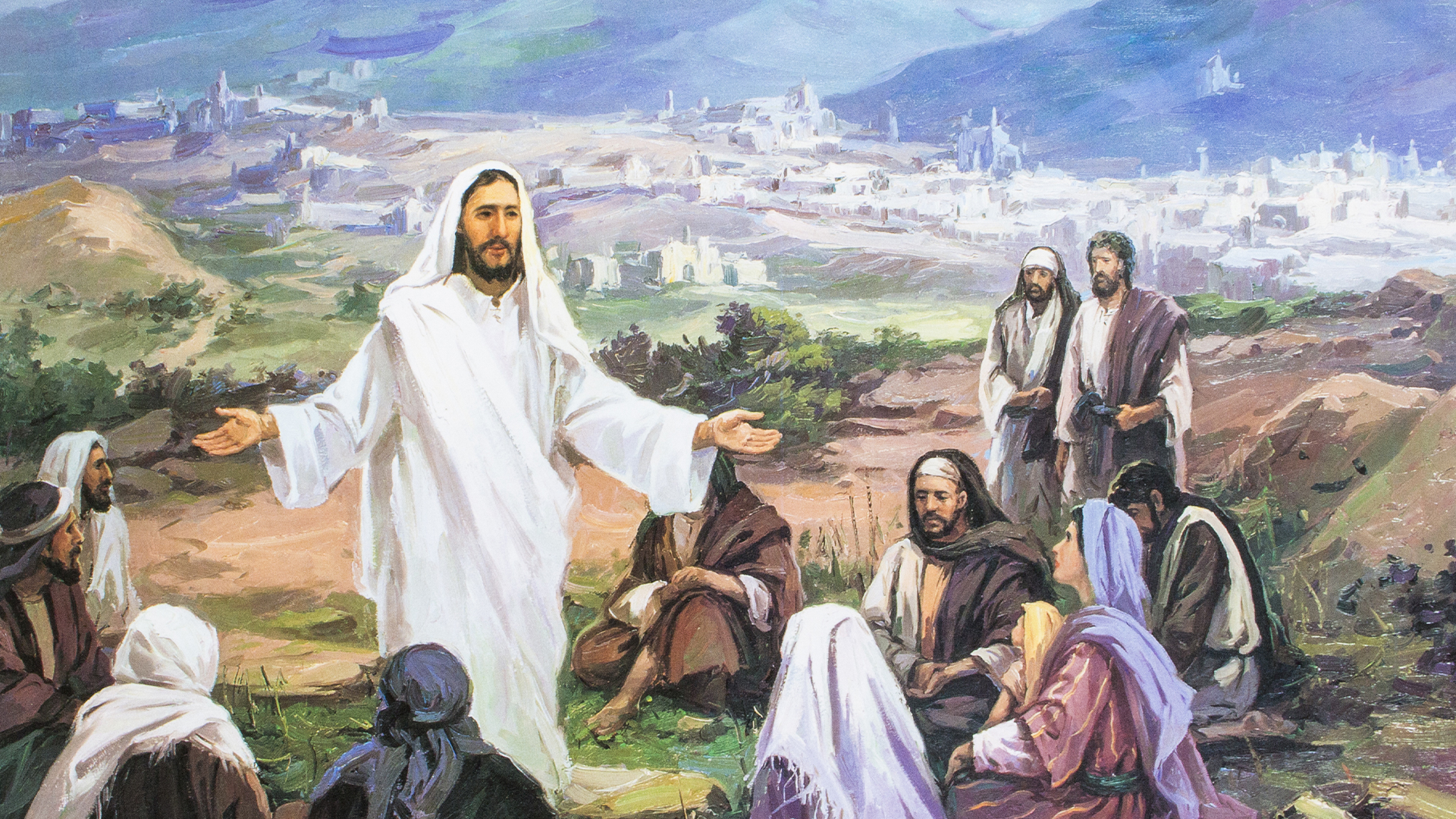

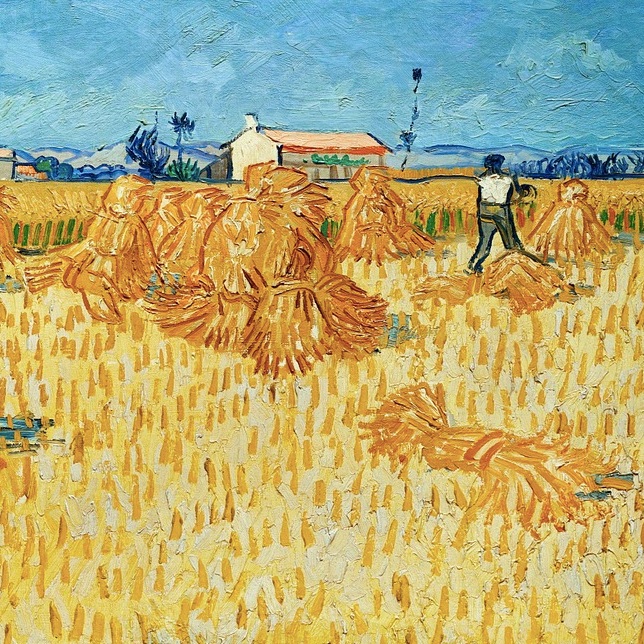
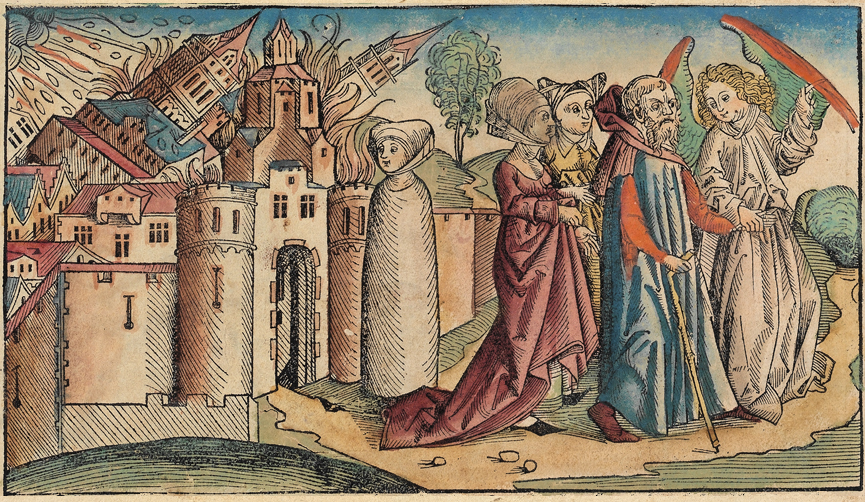
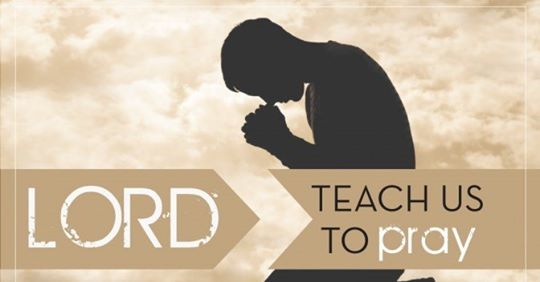
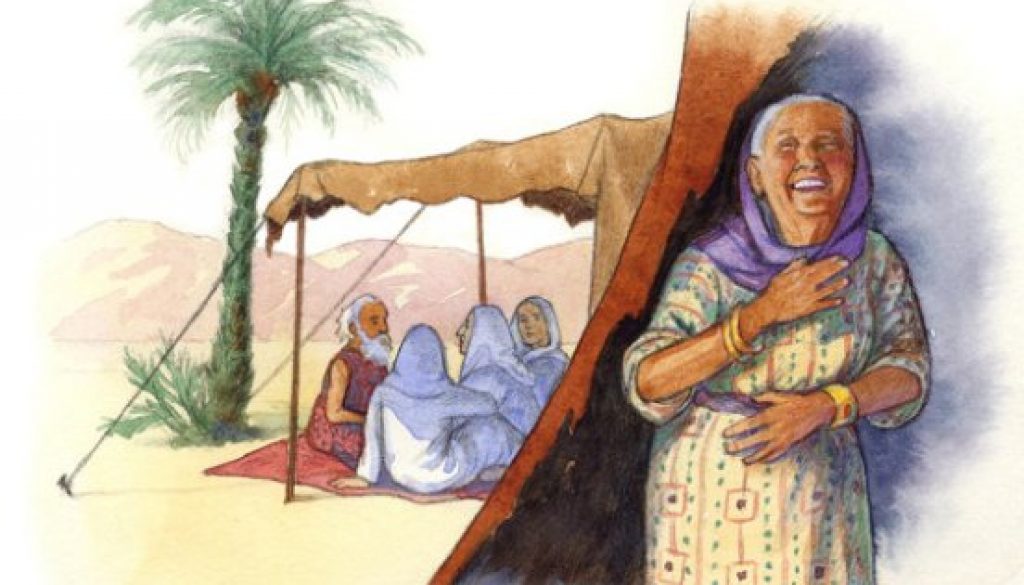
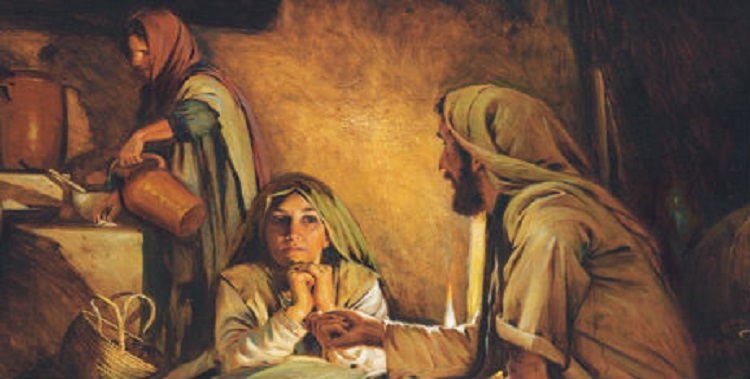
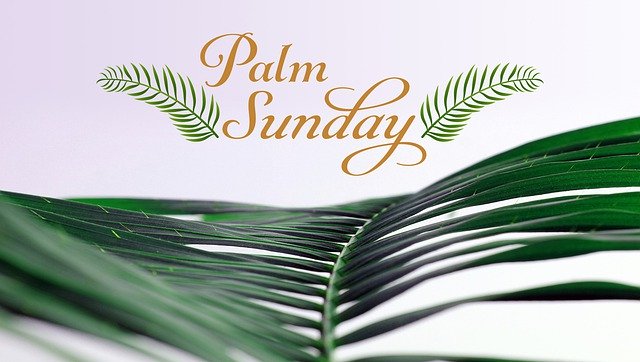
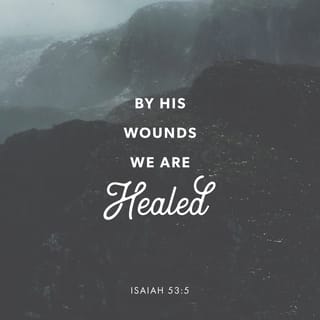

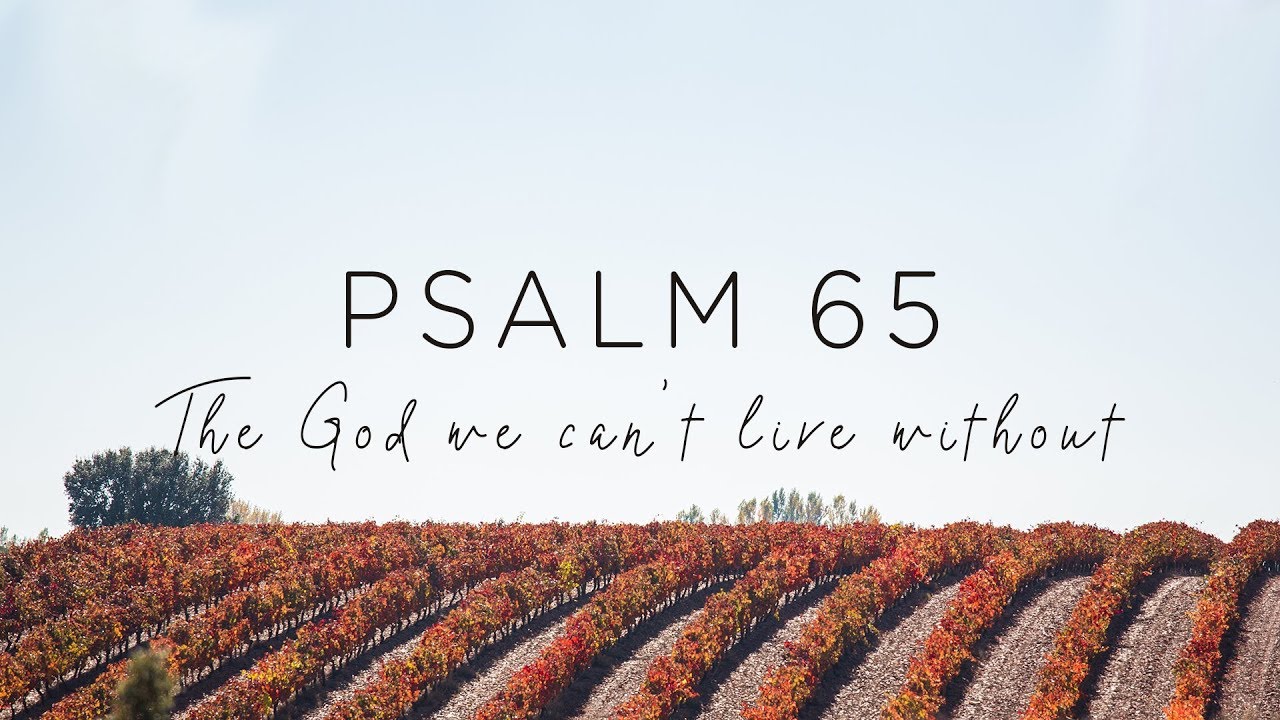
 RSS Feed
RSS Feed